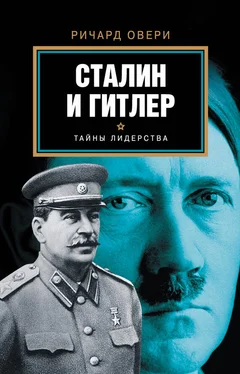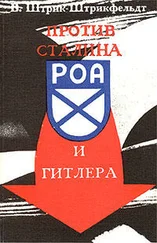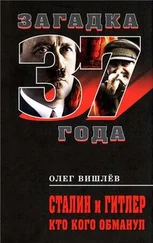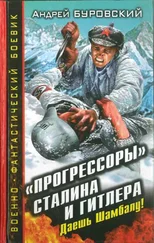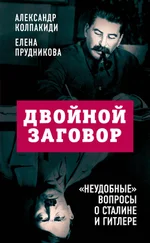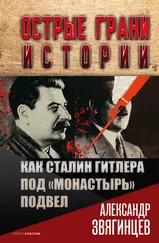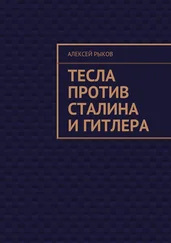Präventivkriegsthese (Darmstadt, 1998).
Ueberschär, G. and Wette, W. (eds) ‘Unternehmen Barbarossa’: Der deutsche Überfall auf die Sowjetunion (Paderborn, 1994).
Ulam, A. Lenin and the Bolsheviks (London, 1965).
Ulam, A. Stalin: The Man and His Era (London, 1973).
Usborne, C. The Politics of the Body in Weimar Germany; Women’s Reproductive Rights and Duties (London, 1992).
Vaksberg, A. The Prosecutor and the Prey: Vyshinsky and the 1930s Moscow Show Trials (London, 1990).
Vaksberg, A. Stalin against the Jews (New York, 1994).
Van Dyke, C. ‘The Timoshenko Reforms March-July 1940’, Journal of Slavic Military Studies, 9 (1996), pp. 69–96.
Vardys, V. The Baltic States under Stalin: the First Experience 1939–1941’, in K. Sword (ed.) The Soviet Takeover of the Polish
Eastern Provinces 1939–1941 (London, 1991), pp. 268–90.
Vieler, E. H. The Ideological Roots of German National Socialism (New York, 1999).
Viola, L. The Best Sons of the Fatherland: Workers in the Vanguard of Soviet Collectivization (New York, 1987).
Viola, L. (ed.) Contending with Stalinism: Soviet Power and Popular Resistance in the 1930s (Ithaca, NY, 2002).
Viola, L. Peasant Rebels under Stalin: Collectivization and the Culture of Peasant Resistance (New York, 1996).
Volkogonov, D. Stalin: Triumph and Tragedy (London, 1991).
Volkogonov, D. Trotsky: the Eternal Revolutionary (London, 1996).
Volkov, V. K. ‘Soviet-German Relations during the Second Half of 1940’, Voprosii istorii, 2 (1997), pp. 3–18.
Vopel, S. ‘Radikaler, völkischer Nationalismus in Deutschland 1917–1933’, in H. Timmermann (ed.) Nationalismus und
Nationalbewegung in Europa 1914–1945 (Berlin, 1999).
Vorländer, H. Die NSV: Darstellung und Dokumentation einer nationalsozialistischen Organisation (Boppard am Rhein, 1988).
Vorsin, V. F. ‘Motor Vehicle Transport Deliveries through “Lend-Lease”’, Journal of Slavic Military Studies, 10 (1997), pp.?
Voslensky, M. Nomenklatura: Anatomy of the Soviet Ruling Class (London, 1984).
Wachsmann, N. ‘“Annihilation through Labor”: The Killing of State Prisoners in the Third Reich’, Journal of Modern History, 71
(1999), pp. 624–59.
Watson, D. Molotov and Soviet Government: Sovnarkom, 1930–41 (London, 1996).
Wegner, B. (ed.) From Peace to War: Germany, Soviet Russia and the World 1939–1941 (Providence, RI, 1997).
Wegner, B. Hitlers politische Soldaten: Die Waffen-SS 1933–1945 (Paderborn, 1992).
Weinberg, R. ‘Purge and Politics on the Periphery: Birobidzhan in 1937’, Slavic Review, 52 (1993), pp. 13–27.
Weindling, P. Health, Race and German Politics between National Unifi cation and Nazism 1870–1945 (Cambridge, 1989).
Weiner, A. The Making of a Dominant Myth: the Second World War and the Construction of Political Identities within the Soviet
Polity’, Russian Review, 55 (1996), pp. 638–60.
Weiner, A. Making Sense of War: The Second World War and the Fate of the Bolshevik Revolution (Princeton, NJ, 2001).
Weiner, A. ‘Nothing but Certainty’, Slavic Review, 61 (2002), pp. 44–53.
Weisbrod, B. ‘Violence and Sacrifi ce: Imagining the Nation in Weimar Germany’, in H. Mommsen, (ed.) The Third Reich between
Vision and Reality: New Perspectives on German History 1918–1945 (Oxford, 2001), pp. 5–22.
Weitz, E. D. ‘Racial Politics without the Concept of Race: Reevaluating Soviet Ethnic and National Purges’, Slavic Review, 61 (2002),
pp. 1–29.
Weitz, J. Hitler’s Banker: Hjalmar Horace Greeley Schacht (London, 1998).
Welch, D. (ed.) Nazi Propaganda (London, 1983).
Welch, D. Propaganda and the German Cinema (London, 2001).
Wellers, G. Les chambers à gaz ont existé: Des documents, des temoignages, des chiffres (Paris, 1981).
Werle, G. Justiz-Strafrecht und polizeiliche Verbrechenskämpfung im Dritten Reich (Berlin, 1989).
Werth, A. Russia at War 1941–1945 (London, 1964).
Wheatcroft, S. ‘More Light on the Scale of Repression and Excess Mortality in the Soviet Union in the 1930s’, in J. A. Getty and R.
Manning (eds) Stalinist Terror: New Perspectives (Cambridge, 1993), pp. 275–90.
Wieczynski, J. (ed.) Operation Barbarossa: the German Attack on the Soviet Union, June 22 1941 (Salt Lake City, 1993).
Wiesen, S. J. ‘Morality and Memory: Refl ections on Business Ethics and National Socialism’’, Journal ofHolocaust Education, 10
(2001), pp. 60–82.
Wild, D. Fragments of Utopia (London, 1998).
Wilhelm, F. Die Polizei im NS-Staat: Die Geschichte ihre Organisation im Überblick (Paderborn, 1997).
Wilhelm, H.-H. (ed.) Rassenpolitik und Kriegsführung: Sicherheitspolizei und Wehrmacht in Polen und der Sowjetunion (Passau,
1991).
Winkler, D. Frauenarbeit im ‘Dritten Reich’ (Hamburg, 1977).
Winkler, H. A. Der Weg in die Katastrophe: Arbeiter und Arbeiterbewegung in der Weimarer Republik 1930 bis 1933 (Berlin,
1987).
Wolf, N. Kirchner (London, 2003).
Woll, H. Die Wirtschaftslehre des deutschen Faschismus (Munich, 1988).
Wysocki, G. Die Geheimestaatspolizei im Land Braunschweig (Frankfurt am Main, 1997).
Yakupov, N. M. ‘Stalin and the Red Army’, Istoriia SSSR, 5 (1991), pp. 170–76.
Yedlin, T. Maxim Gorky: a Political Biography (Westport, Conn., 1999).
Yekelchyk, S. The Making of a “Proletarian Capital”: Patterns of Stalinist Social Policy in Kiev in the mid-1930s’, Europe – Asia
Studies, 50 (1998), pp. 1229–44.
Young, G. Power and the Sacred in Revolutionary Russia: Religious Activists in the Village (University Park, Pa., 1997).
Young, J. W. Totalitarian Language: Orwell’s Newspeak and its Nazi and Communist Antecedents (Charlottesville, Va., 1991).
Zaleski, E. Planning for Economic Growth in the Soviet Union 1918–1932 (Chapel Hill, NC, 1962).
Zaleski, E. Stalinist Planning for Economic Growth 1933–1952 (London, 1980).
Zarubinsky, O. ‘Collaboration of the Population in Occupied Ukrainian Territory: Some Aspects of the Overall Picture’, Journal of
Slavic Military Studies, 10 (1997), pp. 138–52.
Zayas, A. M. de The Wehrmacht War Crimes Bureau, 1939–1945 (Lincoln, Nebr., 1989).
Zehnpfennig, B. Hitler’s Mein Kampf: Eine Interpretation (Munich, 2000).
Zeidler, M. Reichswehr und Rote Armee 1920–1933 (Munich, 1993).
Zelenin, I. The Implementation of Politics of the Elimination of the Kulaks as a Class (Autumn 1930–1932)’, Istoriia SSSR, 6 (1990),
pp. 172–91.
Zeman, Z. Nazi Propaganda (Oxford, 1973).
Zetterling, N. ‘Loss Ratios on the Eastern Front during World War IF, Journal of Slavic Military Studies, 9 (1996), pp. 895–906.
Zhukrai, V. Stalin: Pravda i loch’ (Moscow, 1996).
Ziegler, H. F. Nazi Germany’s New Aristocracy: the SS Leadership, 1925–1939 (Princeton, NJ, 1989).
Ziemann, B. ‘Germany after the First World War – A Violent Society?’ Journal of Modern European History, 1 (2003), pp. 80–95.
Zitelmann, R. Hitler: the Politics of Seduction (London, 1999).
Zuckermann, F. S. The Tsarist Secret Police in Russian Society, 1880–1917 (London, 1996).
1. H. Kohn The Twentieth Century: a Midway Account of the Western World (London, 1950), p. 65.
2. T. Todorov Hope and Memory: Refl ections on the Twentieth Century (London, 2003), pp. 75–7.
3. Todorov, Hope and Memory, p. 82.
4. A. Besançon ‘Nazisme et communisme, également criminels’, Vest européen, 35 (1997), pp. 3–6. See also W. Dlugoborski ‘Das Problem des Vergleichs von Nationalsozialismus und Stalinismus’ in D. Dahlmann and G. Hirschfeld (eds) Lager, Zwangsarbeit, Vertreibung und Deportation (Essen, 1999), pp. 19–28; E. Jahn’Zum Problem der Vergleichbarkeit von Massenverfolgung und Massenvernichtung’ in ibid., pp. 29–51.
Читать дальше
Конец ознакомительного отрывка
Купить книгу
